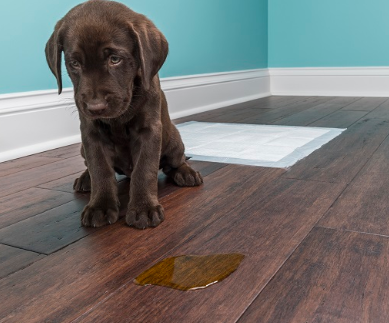You'll locate various proposals for home pet pee cures on pet sites around the Internet, however dog training Pittsburgh chose strategy that numerous homeowners depend on, and one that is destined to help your circumstance without harming your floors.
 Clean Excess Pet Urine Immediately
Clean Excess Pet Urine Immediately When you see the mishap site, get the paper towels. Consistently tallies! Lay paper towels over the spot and let the pee absorb normally—don't endeavor to wipe it as you could really work more pee into the wood pores. When the underlying spill is up, continue blotching the zone tenderly with paper towels until no more dampness shows up on them.
Sprinkle with Baking Soda
Preparing soft drink is a great normal deodorizer just as an absorptive operator. When you've gotten up however much of the chaos as could reasonably be expected, sprinkle a liberal measure of heating soft drink over the influenced region to assimilate and freshen up any staying pet pee. Ensure the whole zone is secured with space to save. Leave the preparing soft drink medium-term to assimilate the abundance pee.
Vacuum the Mess
Subsequent to letting the preparing soft drink sit medium-term, cautiously vacuum up the heating soft drink utilizing a wood-safe connection. Try not to utilize anything with solid brushes or a mixer, as these could scratch the floor.
Deodorizing the Area
When you've cleaned the pet pee, the following test is lifting any waiting scents. Not exclusively will it emit an upsetting smell (particularly in warm climate), yet once a pet has "denoted" that zone, the fragrance may naturally cause him/her to utilize the space once more.

